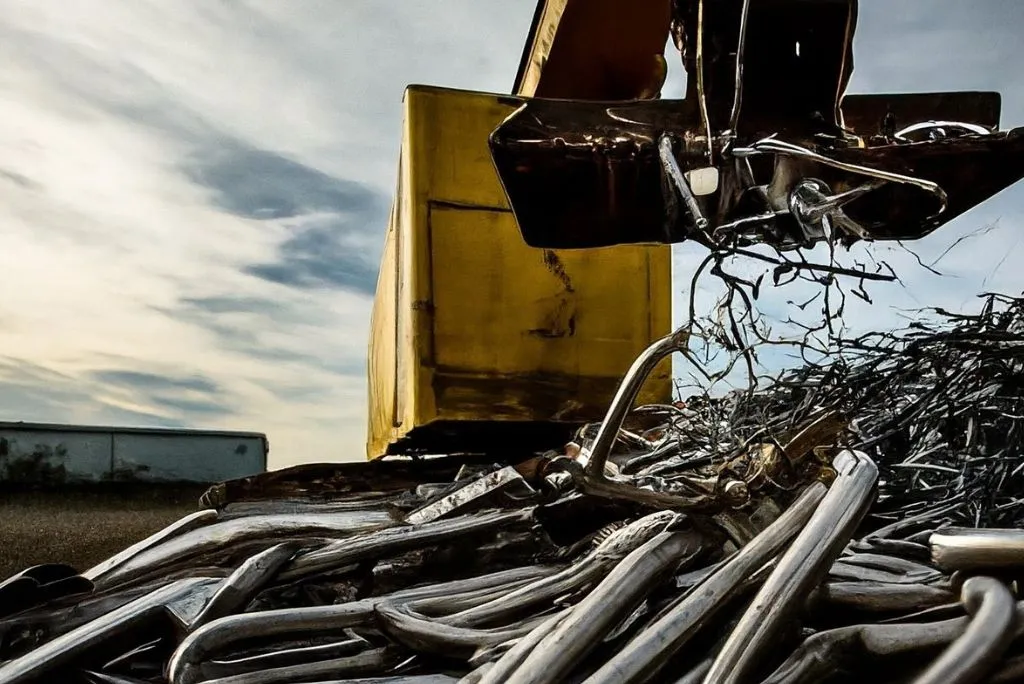Recycling scrap metal is an essential procedure that includes gathering, treating, and repurposing unused metal resources, significantly minimizing the need for extracting new metal. This eco-friendly method helps protect natural resources while reducing energy use and environmental pollution. Recycling ferrous and non-ferrous metals like steel, aluminum, and copper supplies necessary materials for the manufacturing sectors. Recycling scrap metal also contributes to minimizing waste in landfills and promoting a circular economy. For those looking to contribute to this eco-friendly initiative, scrap metal NJ services offer convenient solutions for recycling and repurposing metal waste.
Why Recycle Scrap Metal?
Recycling scrap metal has numerous advantages. Apart from benefiting the environment, it offers substantial energy conservation. Producing new metal from recycled materials requires less energy than mining raw ore. Recycling aluminum reduces the energy required for production by up to 95% compared to using raw materials. In the same way, reusing steel conserves roughly 60% of the energy needed for initial manufacturing.
Furthermore, recycling contributes to reducing greenhouse gas emissions. The production of metals from new ore typically includes methods that release carbon dioxide and other greenhouse gases into the atmosphere. Reusing metal reduces emissions and their impact on global warming and climate change. Scrap metal recycling is crucial in tackling environmental issues as it conserves energy and lowers emissions.
Environmental Benefits of Scrap Metal Recycling
The advantages of recycling scrap metal go beyond just saving energy and reducing emissions. Recycling helps avoid millions of tons of metal going to landfills, preserves space, and lowers soil and water contamination caused by metal leachates. Once disposed of in a landfill, metals can remain unchanged for hundreds of years, releasing toxic substances that can penetrate water supplies and negatively affect local ecosystems.
In addition, extracting fresh metal typically leads to forest loss, habitat devastation, and significant water consumption. Recycling helps reduce the necessity of opening new mines, preserving the Earth’s natural environment and biodiversity. Recycling 2,000 pounds of steel preserves valuable resources by saving 2,500 pounds of iron ore, 1,400 pounds of coal, and 120 pounds of limestone.
Economic Impact of Recycling
Beyond the environmental advantages, scrap metal recycling has a significant economic impact. The recycling industry generates substantial revenue, contributing significantly to local and national economies. Recycling metal creates job opportunities in various sectors, including collecting, sorting, transporting, and processing recycled materials. This positively impacts employment rates and provides a stable income source for many workers.
Countries that invest in recycling infrastructure often benefit from decreased dependency on imported raw materials, resulting in improved trade balances. Additionally, using recycled materials in manufacturing can reduce production costs, benefit industries economically, and promote all economic sustainability. An efficient recycling system can, thus, enhance economic resilience and support national economic strategies aimed at sustainability and self-reliance.
The Scrap Metal Recycling Process
Recycling scrap metal is intricate and fascinating, typically involving several stages: collection, sorting, processing, melting, and purification. Initially, metals are collected from various sources such as households, businesses, and industrial sites. These collected metals are then sorted based on their type and quality. Sorting can be performed manually or through automated systems using magnets and sensors to identify different metals and materials.
Following sorting, the metals are processed, which may involve shredding or compacting to prepare them for transportation and melting. The shredded or compacted metals are then melted in large furnaces specifically designed for different types of metal. After melting, the metal is purified to remove impurities, ensuring it meets the quality standards required for manufacturing new products. Finally, the purified molten metal is cast into new shapes or products, ready for use in various industrial applications.

